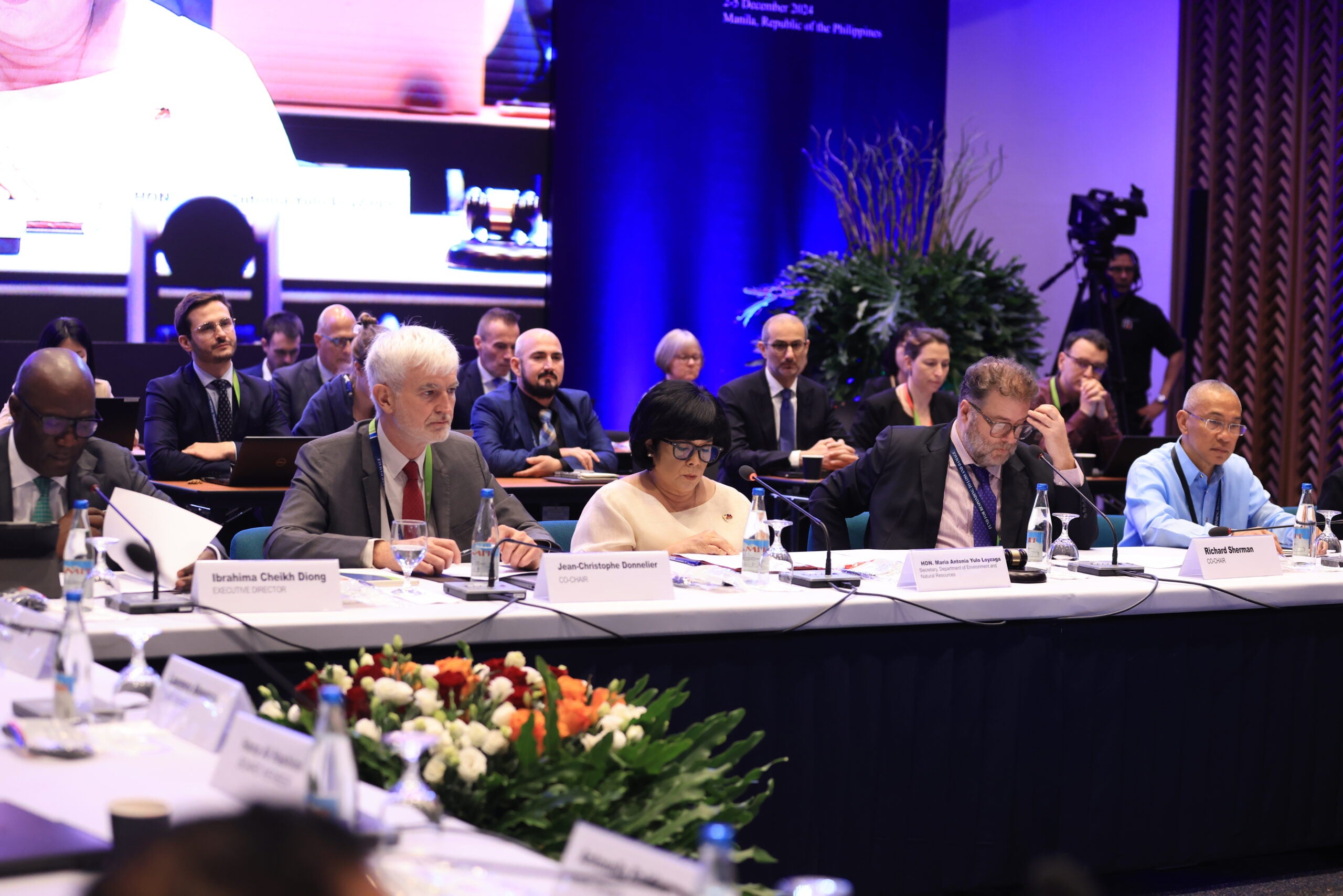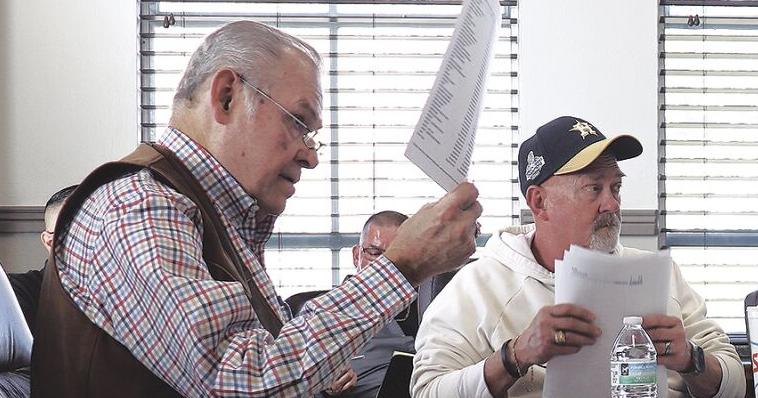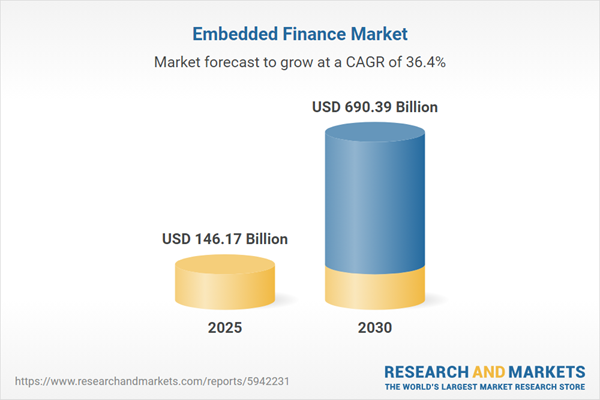- Advisors remain reluctant to recommend crypto, even as prices soar
- Ōura takes a turn on the fitness-finance treadmill
- The Future of Decentralized and Traditional Finance Integration
- Most Americans are unsatisfied with how much money they’ve saved, Yahoo Finance/Marist Poll 2025 survey shows
- Mortgage rates jump again, approaching 7% barrier
Paul S. Ryan took over as executive director of the New York City Campaign Finance Board in February after the previous executive director stepped down under a cloud of dysfunction. So he inherited an organization in a leadership crisis about 10 months before the mayor was federally indicted on corruption charges connected to the CFB’s matching funds program. Just this week, the Campaign Finance Board ruled that it would deny matching funds to Mayor Eric Adams’ 2025 reelection campaign on the basis of possible illegal conduct. It’s been a busy first year, to say the least. And yet, Ryan says it’s his dream job, and he’s had time to figure out a strategic plan for the agency. City & State caught up with the public campaign finance enthusiast the day after the board announced its first matching funds rulings of the cycle. This interview has been edited for length and clarity.
You are viewing: NYC Campaign Finance Board head Paul Ryan welcomes your scrutiny
You’ve said recently that this program is the best in the country for small donor democracy. Why is it so great, in your opinion?
I started studying this program more than 20 years ago. I was right out of law school, working at a nonprofit called the Center for Governmental Studies, and for my first, like, two years in this career, I was studying and writing public policy reports analyzing the effectiveness of public financing programs all over the country. … One of the defining characteristics of New York City’s program is that the law requires this agency to continually evaluate the program. We have to publish two reports every couple of years assessing how the program is working, both our voter analysis report and a post-election report. The board has historically held hearings after elections. I testified at one 20 years ago, when I was researching and writing the report. And it’s that commitment to constant self-evaluation and evolution that brought the matching funds rate from 1 to 1 in the late ’80s, and it’s inched up. A decade ago, it was 6 to 1, and in the late ’10s, you know, six years ago or so, was increased to 8 to 1. The constant evolution makes this a really exciting place to work.
Would you say that this agency is under more scrutiny now than ever because of your oversight of the mayor’s fundraising – this program being the basis for a historic federal indictment?
I’m only 10 months into my tenure here, so I don’t have any point of relative comparison. I will say that being involved with public financing programs all over the country, and at the federal level for 25 years now, these programs are always under scrutiny. That’s not a bad thing. We take very seriously our responsibility of administering our programs, including the matching funds program, in a nonpartisan way, in a way that’s fair and in a way that protects the resources, the dollars that taxpayers trust us with. So I think we’re doing a great job. Scrutiny, I don’t know if it’s higher or lower, but to the extent that there is scrutiny of this agency, I think it’s warranted, not only in this election year, not because of one candidate, but because of the job we’re tasked with doing, and I’m proud of the way we do it.
On. Dec. 17, the CFB denied matching funds to Eric Adams, and the board issued a statement – which my understanding is that that’s pretty rare – saying: “There’s reason to believe that the Adams campaign has engaged in conduct detrimental to the matching funds program, in violation of law, including the Campaign Finance Act and board rules.” Do you know why the board decided to make an unusual statement like that? Why is that important to explain?
I know Chair (Frederick) Schaffer led into that remark by explaining that there’s a lot of public interest, understandably. And that’s the reason that the chair and the board decided to make a statement on that. And Chair Schaffer also made clear that that would be the extent of our comment on that decision, the public funds decision that was made yesterday. So I have nothing to add to that.
As executive director, how much do you interact with the board ahead of a big ruling like that?
My communication with the board since I came onboard in February has not varied in relationship to any specific board meeting. Yesterday’s public funds payment decisions were made in the context of a regularly scheduled board meeting. There was an enforcement action on the agenda. So no, you know, I engage with the board routinely, regularly. I meet with the chair, for example, every Thursday afternoon, just for a check-in meeting, as I would with, you know, he’s a pretty light hand, but I report to the board. So lots of engagement, but no special, heightened engagement. I think our approach to this payment date was business as usual. We’re going to apply the law to all the facts and information available for all the candidates. Yesterday, there were 94 candidates who did not establish their eligibility for public funds, and 19 who did. So that’s to be expected this early in the process, and there was nothing extraordinary, really, about how the board approached its decisions yesterday. It did the job it did in 2023 and will do seven more times between now and the June primary.
Did you see the New York Post editorial that just came out?
No.
You didn’t?!
No.
Well, they came out and criticized the Campaign Finance Board for being an unelected board that’s undemocratic and that has majorly impacted this mayoral race without there being an actual conviction, without there being an actual legal conclusion to go off of. What do you think about that?
The independence of this board is one of its defining characteristics that enables it to do its job without worrying about political consequences. No decisions that have been made by the board since I’ve joined have been, to my knowledge or belief, influenced in any way by any political consideration. So you know, our independence is a strength.
You mentioned that we didn’t have any surprises. I think that the Brad Lander campaign paperwork issue was surprising. What is your relationship with campaigns to help remind them about deadlines or keep them on top of things?
Every campaign has a liaison in our Candidate Services Unit, which is within our Candidate Guidance and Policy Division. Regular contact, regular communication, lots of information available on our website, training requirements – we’ve actually just amended this part of our rules. It takes effect later this week on (Dec.) 19. We’ve changed the rules now that every candidate has to go through these trainings. They cannot send a representative. And not only every treasurer once, but if you replace your treasurer during the campaign, the new treasurer has to go through these trainings. So all candidates, all treasurers, they’re informed about what the requirements of the program are. Our candidate services team communicates regularly with reminders, and are available to talk by phone, answer questions. So tons of communication. I think we do a really good job of it.
And there are a lot of requirements. That’s not a bad thing. That’s a good thing. I think it shows the rigor with which we enforce the rules and the laws and the requirements. So there are a lot of reasons that those 94 candidates who were not eligible yesterday for payment were not eligible. They didn’t meet the threshold. You have to raise a certain number of contributions in a certain dollar amount to be eligible. Some did not file their personal financial disclosure statement with the Conflicts of Interest Board on time. That’s another requirement. Some didn’t attend the trainings that I just mentioned. That’s a requirement. Some failed to file, or late filed the statement of need, which is another piece of paperwork that’s necessary. Again, I want to emphasize yesterday was the first of eight opportunities for campaigns to get public funds between now and the primary. The next opportunity is in mid-January, and many more candidates will receive funding. I have no doubt they’ll establish their eligibility to get funding in January.
When and why did you change the role to require the candidates themselves to attend the training?
Because in the enforcement context, this was not specific to any candidate in particular. This is an observation: I think the board wants to be in the strongest position of holding campaigns, treasurers, candidates accountable when there have been violations of law. And at the end of the long road of a rigorous audit process and the enforcement process, campaigns can choose to come before the board for a hearing. This happens in our regularly scheduled public meetings, and occasionally I don’t, I wasn’t, I haven’t been here, but I’m sort of sharing anecdotes but they’re rooted in experience. Candidates will show up, or treasurers will show up, and they’ll say, “So sorry. I didn’t know we had to do that.” And I think the board, the agency, wanted to take that explanation for noncompliance off the table. So going forward, it will not be sufficient to show up and say, “I didn’t know,” because we’ll say, “You went, you were required to, and you did, in fact, go through a training. You were told that these were the requirements, and now we’re here to hold you accountable.”
Source link https://www.cityandstateny.com/personality/2024/12/nyc-campaign-finance-board-head-paul-ryan-welcomes-your-scrutiny/401777/
Source: https://summacumlaude.site
Category: News







